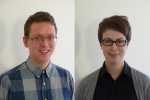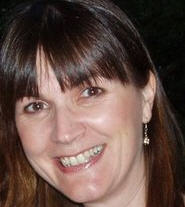Can you imagine a scientist? Alternatively, can you imagine yourself working as a scientist? These are questions that Liz Whitelegg, Richard Holliman and myself, all members of the Invisible Witnesses team, have been asking school students.
Prison-based higher level distance learning and its role in life after prison
Higher level distance learning in prison gives prisoners a positive student identity, resilience and high hopes for a better, crime-free future. These qualities help them to tackle the immense challenges facing ex-prisoners. Maintaining their student identity and belonging to a learning community after release, also enables them to integrate into society more easily.
Developing a publics-centred approach to conducting and evaluating engaged research
A case study of the Participation Now project
If you are reading this blog, you’ll no doubt be aware that public engagement is high on the agenda within higher education and many other domains. You’ll also probably be aware that researchers face increasing pressures – from their institutions, funders and colleagues – to engage publics and produce evidence of the ‘impact’ and ‘relevance’ of their research. However, little systematic attention has so far been paid to what precisely is meant by the ‘public’ in public engagement.
What happens if we put the ‘public’ at the centre of our efforts to conceptualise, conduct and evaluate publicly engaged research? This question formed the starting point for a presentation that we gave at the Open University on 9th June as part of the Engaging Research seminar series.
Evaluating ways of capturing engagement processes
Project Team: Gill Clough, Eliz Hartnett, Andrew Brasher, Canan Blake, Anne Adams
We are really excited to have been selected for seed funding from the Evidencing Engaged Research call. This project builds on and extends the work we are doing on the JuxtaLearn Project which aims to engage students with science and technology through creative video performance (see our earlier post).
Engaging research and communication: OU practices and tools

Trevor Collins, Knowledge Media Institute, OU.
Last week (12th May), Ann Grand and I gave a seminar at the OU on Digital Engagement. I started by giving a brief introduction to public engagement, referring to the NCCPE’s EDGE tool for self-assessment, and a description of the purpose of the OU’s Public Engagement with Research Catalyst project.
Researchers and social media: a game of snakes and ladders

Ann Grand
Ah, the irony. A workshop on how researchers use social media that was conducted entirely through the medium of a board game and cut-out paper snakes.
Continue reading
Managing ecosystems: research impact through engagement
An award-winning, externally-facing partnership with research at the core
I don’t think of myself as an academic. Before I took on my current role as an Outreach Coordinator within the award-winning Floodplain Meadows research team at the Open University I’d worked for 12 years for the Environment Agency, delivering policy, legislation and proactive conservation projects ‘on the ground’ in Dorset, Wiltshire and a little bit of Hampshire. I’d worked with a wide range of conservation and community partners, occasionally getting cross with flood defence engineers. In short, I came to this job for a change!
Technology and data driven collaboration – archaeological practice in the 21st Century
Seminar given on March 10th, 2014 by Anthony Beck, OrcID: Honorary fellow – University of Leeds, School of Computing
The text is CC0 (+BY). The illustrations are CC-BY.
Improving impact through Open Science

The Detection of Archaeological residues using Remote Sensing Techniques (DART) project has the overall aim of developing analytical methods for identifying heritage features and quantifying gradual changes and dynamics in sensor responses. To examine the complex problem of heritage detection DART has attracted a consortium consisting of 25 key heritage and industry organisations and academic consultants and researchers from the areas of computer vision, geophysics, remote sensing, knowledge engineering and soil science.
Continue reading
Digital tools for communication and engagement

Ann Grand, The Open University
Creating and sustaining an online research presence
As part of a small team of researchers working within the OU’s Public Engagement with Research Catalyst team, Trevor Collins and I have been exploring how researchers across the OU are using digital tools as part of their public engagement with research activities to develop an online presence that sustains public engagement with their research. Here’s an update on the work we’ve been doing…
Research staff surveys
The first step was to include four questions in the Vitae CROS and PIRLS research staff surveys in 2013. In one, we asked respondents to give us an example of a public engagement activity they had undertaken; only 3.5% (six people) identified some form of digital engagement (e.g. blogging, citizen science, podcasting, etc.). This suggests either that respondents are unaware of the potential of digital tools as an engagement technology or do not think of digital technologies as a means for engagement.
Research project interviews
Evolving science communication: theory and practice … what happened next?
On Friday 4th April 2014 the Science Communication Unit (SCU), at the University of the West of England, Bristol held its second Evolving Science Communication conference. I talked about the run up to this conference in a previous post.
The conference celebrated 10 years of science communication programmes based at the SCU and it was lovely to see that around a fifth of delegates on the day were our graduates.
The programme was packed with interesting plenary talks, vibrant presentations and quick paced PechaKucha chats. The Science Communication Unit @SciCommsUWE Twitter feed captures some of the online discussion, and we’ve also created a Storify of the day.






